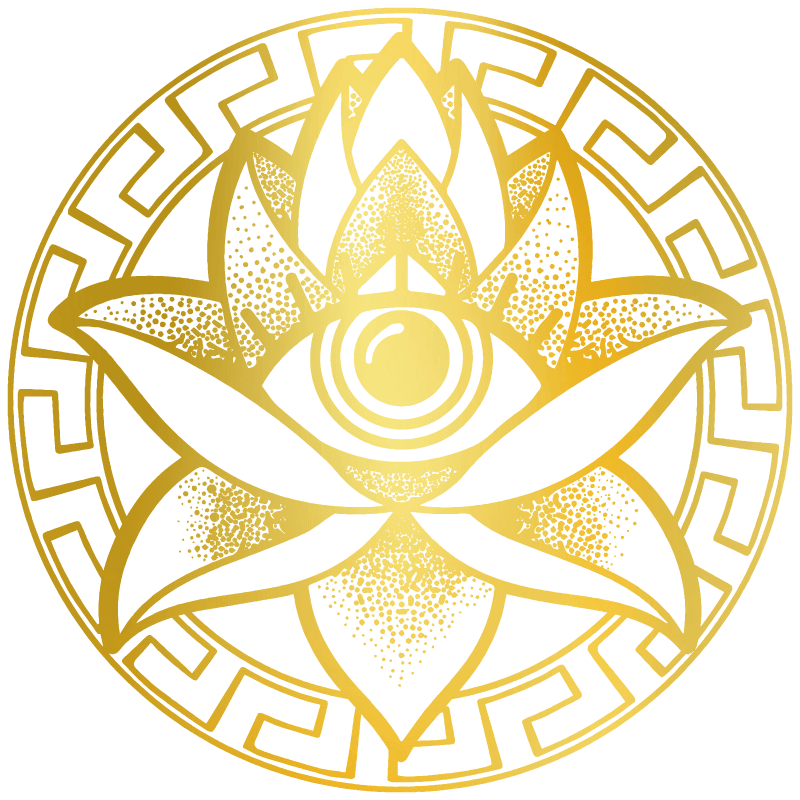In a world where stress levels are skyrocketing and burnout has become a common term, natural remedies are regaining attention. Among these, Blue Lotus (Nymphaea caerulea) — once revered by ancient Egyptians as a symbol of tranquility and spiritual enlightenment — is making a modern comeback. Many people are now asking whether Blue Lotus can help with stress relief and cortisol regulation, the body’s primary stress hormone.
This article explores the science, history, and potential stress-relieving benefits of Blue Lotus, offering an in-depth look into how this mystical flower might support your mental well-being and hormonal balance.
Understanding Stress and Cortisol
Before diving into Blue Lotus, it’s essential to understand the role of cortisol in your body. Cortisol is produced by the adrenal glands and plays a crucial role in managing:
-
Energy levels
-
Blood pressure
-
Inflammation control
-
The body’s “fight or flight” response
When stress is constant, cortisol production stays elevated, leading to chronic fatigue, anxiety, sleep disruption, and even weight gain. Modern lifestyles have made cortisol imbalance one of the most common underlying causes of stress-related illnesses.
That’s where natural adaptogenic herbs and botanicals — like Blue Lotus — come into play. They help the body return to homeostasis by promoting relaxation and balancing stress hormones.
What Is Blue Lotus? A Botanical Overview
Blue Lotus (Nymphaea caerulea) is a water lily native to Egypt and parts of Asia. Historically, it was considered sacred, often depicted in Egyptian art and associated with the sun god Ra. Ancient Egyptians brewed it into teas, infused it in wines, or used it as incense during rituals for relaxation and spiritual awakening.
Active Compounds in Blue Lotus
Modern research has identified several key compounds responsible for its effects:
-
Nuciferine – a natural alkaloid that promotes calmness and reduces restlessness.
-
Apomorphine – a dopamine receptor agonist known to elevate mood and induce mild euphoria.
-
Flavonoids and antioxidants – which combat oxidative stress and support brain health.
These compounds work synergistically to create a gentle calming effect without heavy sedation — making Blue Lotus a potential natural aid for managing stress and balancing cortisol.
How Blue Lotus May Help Manage Stress and Cortisol
1. Supports the Nervous System
Blue Lotus acts as a natural nervous system relaxant. The alkaloid nuciferine interacts with serotonin and dopamine receptors, helping to:
-
Calm racing thoughts
-
Improve focus under stress
-
Encourage relaxation without drowsiness
When your nervous system is calmer, your hypothalamic-pituitary-adrenal (HPA) axis — which governs cortisol production — begins to stabilize. This can indirectly reduce chronic cortisol spikes.
2. Promotes Better Sleep
Poor sleep is one of the biggest triggers for cortisol imbalance. Blue Lotus tea or tincture has traditionally been used as a bedtime beverage due to its mild sedative properties. By improving sleep quality, it helps regulate cortisol rhythm, ensuring your stress hormones remain balanced throughout the day.
3. Reduces Anxiety and Mood Swings
Blue Lotus’s mood-lifting properties come from dopamine stimulation. This neurotransmitter is responsible for feelings of motivation, pleasure, and reward. When dopamine levels are balanced, stress perception decreases, and the emotional response to pressure improves.
A 2021 review on natural anxiolytics noted that compounds similar to those in Blue Lotus can help modulate the body’s stress response by reducing amygdala activation — the part of the brain responsible for fear and anxiety.
4. Fights Oxidative Stress
Chronic stress increases oxidative damage in the body. Blue Lotus is rich in antioxidants that neutralize free radicals and reduce inflammation — key factors that exacerbate cortisol imbalances.
In turn, this antioxidant support contributes to better adrenal function, helping your body adapt to stress more effectively over time.
Scientific Insights and Modern Research
While modern clinical trials on Blue Lotus are limited, preliminary studies and anecdotal reports support its adaptogenic and anxiolytic effects.
-
Animal studies suggest that nuciferine can influence dopamine and serotonin activity, enhancing mood and reducing stress-induced behaviors.
-
Traditional medicine research notes that Blue Lotus extracts may offer mild antidepressant and anti-inflammatory benefits, contributing to improved emotional stability.
-
Neurochemical analyses show that compounds in Blue Lotus could mimic natural neurotransmitter regulators, reducing excessive cortisol release during periods of psychological stress.
Although more human-based studies are needed, the biochemical potential of Blue Lotus in stress and cortisol management is promising.
How to Use Blue Lotus for Stress Relief
1. Blue Lotus Tea
One of the most common methods is steeping dried Blue Lotus petals in hot water for 10–15 minutes. The tea produces a light floral aroma and a subtly euphoric calm. Best consumed before bedtime or during stressful moments.
2. Blue Lotus Tincture or Extract
A concentrated tincture can be taken sublingually or added to drinks. It provides faster absorption and is ideal for those seeking quick relaxation.
3. Blue Lotus Vape or Aromatherapy
Some use Blue Lotus as a natural aromatic herb, inhaling its vapor or diffusing it in essential oil form to promote relaxation and meditative focus.
4. Blue Lotus-Infused Chocolate or Edibles
A growing number of wellness brands (like Boom Bar) are combining Blue Lotus with other botanicals to create stress-relieving edibles. These not only taste delightful but also make it easier to incorporate Blue Lotus into your daily wellness routine.
Safety, Dosage, and Precautions
Blue Lotus is generally considered safe for most adults when used responsibly. However:
-
Avoid excessive use, as high doses can cause mild dizziness.
-
Pregnant or breastfeeding individuals should consult a healthcare professional.
-
It may amplify the effects of other sedatives or alcohol.
Always start with low doses (a small cup of tea or 1–2 drops of tincture) and observe how your body responds.
Pairing Blue Lotus with Other Adaptogens
For enhanced cortisol balance, Blue Lotus can be combined with:
-
Ashwagandha – for deeper adrenal support
-
Rhodiola Rosea – for energy and mental clarity
-
Reishi mushroom – for immune balance and relaxation
These combinations create a synergistic adaptogenic effect, supporting both body and mind in the fight against chronic stress.
Final Thoughts: A Bloom of Calm in a Stressful World
Blue Lotus stands out not just as a symbol of beauty but as a potential natural ally for stress and cortisol management. Its blend of soothing alkaloids, antioxidants, and mood-regulating compounds make it an ancient remedy fit for modern times.
Whether enjoyed as tea, tincture, or part of a holistic stress-relief ritual, Blue Lotus offers a gentle path toward emotional balance, helping your body adapt and recover from the daily demands of modern life.
FAQs
1. What does Blue Lotus do for stress?
Blue Lotus contains natural compounds like nuciferine and apomorphine that help calm the nervous system, ease anxiety, and promote relaxation. This reduces the body’s stress response and supports a balanced mood.
2. Can Blue Lotus actually lower cortisol levels?
While direct scientific data is limited, Blue Lotus is believed to help regulate cortisol indirectly by improving sleep quality, reducing anxiety, and supporting the body’s natural stress response system (HPA axis).
3. Is Blue Lotus safe to use daily?
Yes, when used in moderate amounts such as tea or tincture, Blue Lotus is generally safe for daily use. However, high doses can cause mild drowsiness or dizziness, so start small and increase gradually if needed.
4. How long does it take to feel the effects of Blue Lotus?
Most users notice a sense of calm and relaxation within 15–30 minutes of drinking Blue Lotus tea or using a tincture. Effects are gentle and build up with consistent use over time.
5. Can I mix Blue Lotus with other herbs or adaptogens?
Absolutely. Blue Lotus blends well with Ashwagandha, Reishi, or Rhodiola, creating a synergistic adaptogenic effect that enhances stress resistance and promotes emotional balance.

